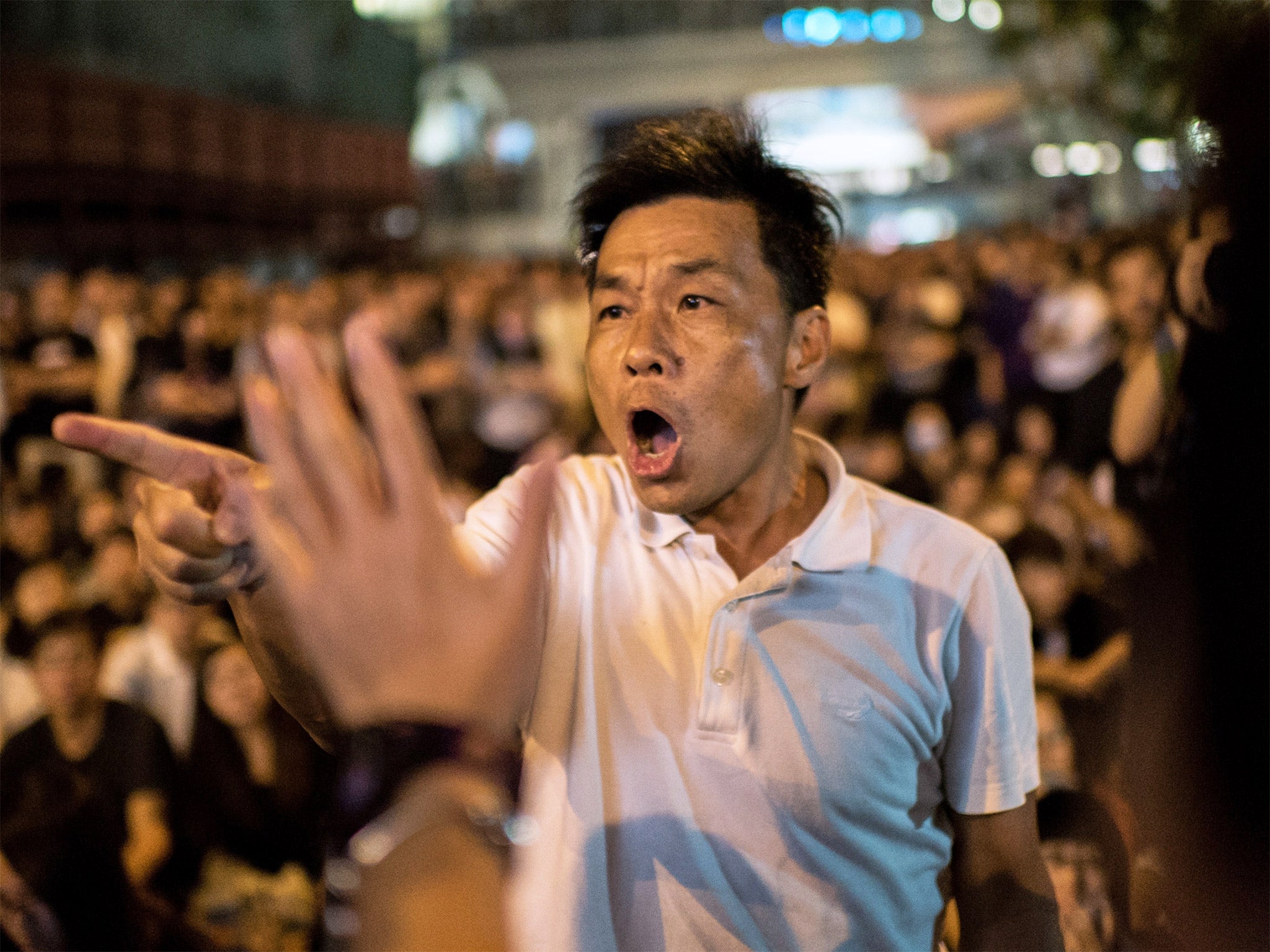Hong Kong protests: Hongkongers fight for what makes their city unique
With little accountability, the city’s government focuses on keeping Beijing happy. But now it is time to hear citizens’ concerns


The policing of Hong Kong’s Occupy protest has been deeply disturbing. This force has for years been touted as an advertisement for the professionalism and fairness that were part of the legacy of British rule. It still has around 100 British officers in its ranks, one or two of whom have been visible during the protests. But the savage beating meted out to Ken Tsang was a stark betrayal of its reputation.
In fact, the police’s behaviour has been erratic from the outset. It was the capricious and unnecessary tear-gassing of a small demonstration near government headquarters on 28 September which prompted many tens of thousands of Hongkongers to take to the streets in the following days, turning large stretches of the city centre into traffic-free zones.
That first week, which coincided with national and local holidays, had more the mood of a carnival than an insurrection, enhanced by the absence of police from the streets. But that sense of the police’s indifference has disappeared, replaced by vengeful fury. The beating and kicking of Mr Tsang – kicking so insistent and ferocious that it looked calculated to cause severe internal injuries – suggests a force whose senior officers have no idea how to deal with this unprecedented and overwhelmingly peaceful act of civil disobedience, and who in their bafflement are oscillating between doing nothing and inflicting arbitrary punishment that is outrageous and counter-productive.
The Hong Kong gov-ernment, under its deeply unpopular chief executive C Y Leung, has displayed similar symptoms of panic, confusion and strategic cluelessness.
Mr Leung’s resignation was one of the protesters’ main demands, along with the right of Hongkongers to nominate their own candidates for chief executive in the next election. In the only concession the protesters have yet received, Mr Leung proposed talks between their leaders and his top civil servant, Carrie Lam. Few protesters held out much hope for the talks, but before they could even get under way the government cancelled them, on flimsy grounds.

The lack of coherent leadership is one of the reasons this protest has been so strongly supported by the population. Hong Kong has a very different history from the rest of China, and the point of the “one country, two systems” formula for the handover of 1997 was to foster and protect the political, legal, financial and educational institutions that make the place special and prosperous.
Even a politician of genius would find the task of bringing this post-colonial entity into harmony with the communist mainland a daunting challenge. It is one for which Mr Leung and his mediocre colleagues have neither stomach nor aptitude. Lacking local accountability – Mr Leung obtained a grand total of 689 votes in the election that brought him to power – their only concern is to keep their masters in Beijing happy.
Nobody expects Beijing to roll over, because to do so could ignite similar movements across the country. But at this fearful juncture, the Hong Kong government needs to take careful stock.
It needs to recognise that this movement, which refuses to pack up and go home, is not a manifestation of delinquency, not a product simply of youthful idealism or vain, utopian aspirations.
Emerging from the guts of the Cantonese, this most practical of peoples, it is a legitimate warning that, under the current administration, Hong Kong risks losing everything that makes it valuable and unique for its seven million residents, as well as for all the people in the mainland and elsewhere whom it helps to make rich. At this point, the two sides need to talk.
Join our commenting forum
Join thought-provoking conversations, follow other Independent readers and see their replies
Comments
Bookmark popover
Removed from bookmarks